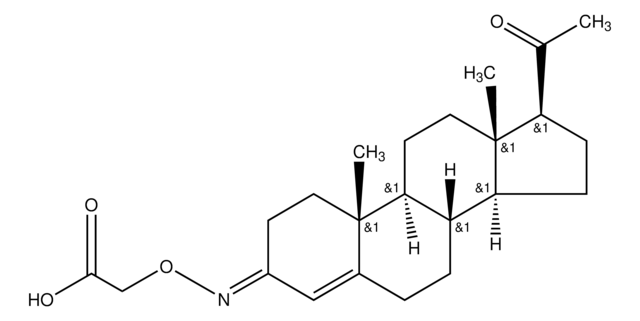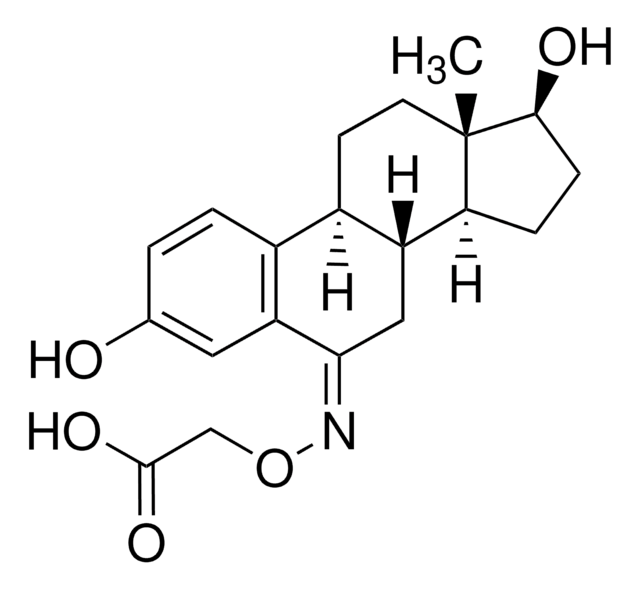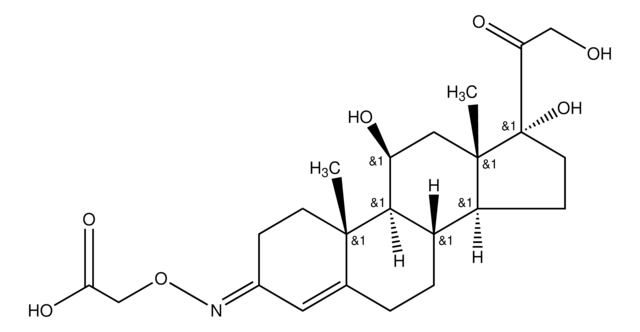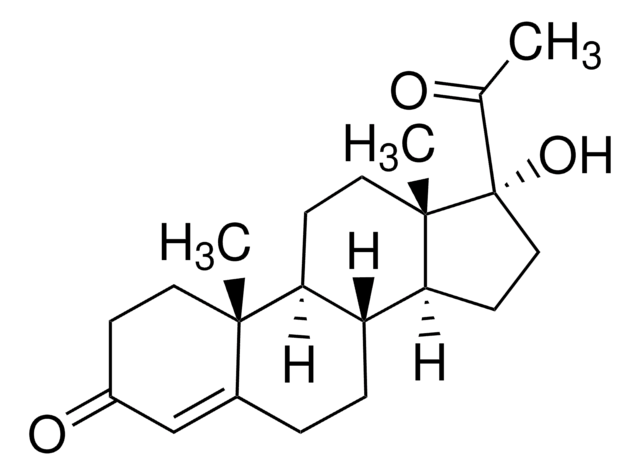T8390
Testosterone 3-(O-carboxymethyl)oxime
Synonym(s):
17β-Hydroxy-4-androsten-3-one 3-(O-carboxymethyl)oxime, 4-Androsten-17β-ol-3-one 3-(O-carboxymethyl)oxime
About This Item
Recommended Products
sterility
non-sterile
Quality Level
Assay
≥98.00% (TLC)
form
powder
drug control
Home Office Schedule 4.2; regulated under CDSA - not available from Sigma-Aldrich Canada
solubility
ethanol: soluble 49-51 mg/mL, clear, colorless to faintly yellow
shipped in
ambient
storage temp.
room temp
SMILES string
[H][C@@]12CCC3=CC(\CC[C@]3(C)[C@@]1([H])CC[C@]4(C)[C@@H](O)CC[C@@]24[H])=N\OCC(O)=O
InChI
1S/C21H31NO4/c1-20-9-7-14(22-26-12-19(24)25)11-13(20)3-4-15-16-5-6-18(23)21(16,2)10-8-17(15)20/h11,15-18,23H,3-10,12H2,1-2H3,(H,24,25)/b22-14+/t15-,16-,17-,18-,20-,21-/m0/s1
InChI key
VDYLVWGBLQNNAW-UVTKPVMCSA-N
Application
Biochem/physiol Actions
Preparation Note
Signal Word
Warning
Hazard Statements
Precautionary Statements
Hazard Classifications
Acute Tox. 4 Dermal - Acute Tox. 4 Inhalation - Acute Tox. 4 Oral - Carc. 2
Storage Class Code
11 - Combustible Solids
WGK
WGK 3
Flash Point(F)
Not applicable
Flash Point(C)
Not applicable
Personal Protective Equipment
Choose from one of the most recent versions:
Already Own This Product?
Find documentation for the products that you have recently purchased in the Document Library.
Our team of scientists has experience in all areas of research including Life Science, Material Science, Chemical Synthesis, Chromatography, Analytical and many others.
Contact Technical Service









